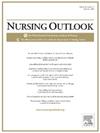黑人男性护理领袖网络导师计划的作用。
IF 4.1
2区 医学
Q1 NURSING
引用次数: 0
摘要
尽管护理是所有医疗保健劳动力中最大的一部分,在美国有超过500万的执业注册护士,但黑人男性的代表性仍然明显不足,仅占护理劳动力的0.67%至1%。这种代表性不足延伸到领导职位,在护理领域,黑人男性领导者的数量被描述为无法量化。为了应对这种差异,五名有博士学位的黑人男性护士领袖建立了黑人男性护士领袖网络(NBMNL)。本文讨论了NBMNL的建立,提供了黑人男护士领导数量的更新,并探讨了黑人男护士对接受指导以支持其领导力发展的兴趣。本文强调了指导和支持黑人男护士的重要性,以增加他们在该领域的代表性,并改善他们所服务社区的健康结果,从而促进卫生公平。本文章由计算机程序翻译,如有差异,请以英文原文为准。
Role out of Network of Black Male Nursing Leaders Mentorship Program
Despite nursing being the largest segment in all of the healthcare workforce, with over five million practicing registered nurses in the United States, Black males remain significantly underrepresented, comprising merely about 0.67% to 1% of the nursing workforce. This underrepresentation extends into leadership positions, where the number of Black male leaders in nursing is described as unquantifiable. In response to this disparity, five doctorally prepared Black male nurse leaders established the Network of Black Male Nurse Leaders (NBMNL). This paper discusses the establishment of the NBMNL, provides an update on the number of Black male nurse leaders, and explores the interest among Black male nurses in receiving mentorship to support their leadership development. The paper underscores the importance of mentoring and supporting Black male nurses to increase their representation in the field as well as improve the health outcomes of the communities they serve, thereby advancing health equity.
求助全文
通过发布文献求助,成功后即可免费获取论文全文。
去求助
来源期刊

Nursing Outlook
医学-护理
CiteScore
6.20
自引率
7.00%
发文量
109
审稿时长
25 days
期刊介绍:
Nursing Outlook, a bimonthly journal, provides innovative ideas for nursing leaders through peer-reviewed articles and timely reports. Each issue examines current issues and trends in nursing practice, education, and research, offering progressive solutions to the challenges facing the profession. Nursing Outlook is the official journal of the American Academy of Nursing and the Council for the Advancement of Nursing Science and supports their mission to serve the public and the nursing profession by advancing health policy and practice through the generation, synthesis, and dissemination of nursing knowledge. The journal is included in MEDLINE, CINAHL and the Journal Citation Reports published by Clarivate Analytics.
 求助内容:
求助内容: 应助结果提醒方式:
应助结果提醒方式:


